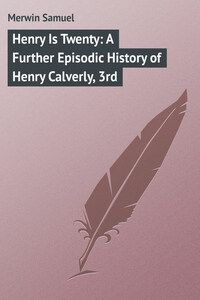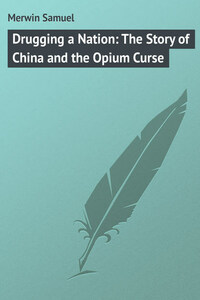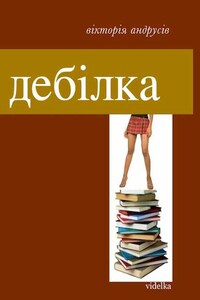OF PATTERNS AND PERSONS
It would be ungracious to let this book go out into a preoccupied world without some word of gratitude to those who have written regarding the young Henry as he has appeared from month to month in a magazine. The letters have been the kindliest and most stimulating imaginable; and have surprised me, for I have never found it easy to picture Henry as a popular hero of fiction.
He isn’t, of course, a hero at all. His weaknesses are too plain – the little evidences of vanity in him, his selfcentred moments, his errant susceptibilities – and heroes can’t have weaknesses. And heroes – in any well-regulated pattern-story – must ‘turn out well.’ Henry, in this book, doesn’t really turn out at all. His success in Episode X is a rather alarming accident. I think he’ll do well enough, when he’s forty or so. At twenty, no. He has huge doses of life’s medicine yet to swallow. And all his problems are complicated by the touch of genius that is in him.
Another thing: there couldn’t have been a Mamie Wilcox in our pattern-story. And certainly not a Corinne. Hardly even a Martha. For a ‘divided love interest’ destroys your pattern. Yet Marthas, Corinnes, Mamies occur everywhere. So I can’t very well apologise for their presence here.
We might, of course, have had Henry overthrow the Old Cinch in Sunbury; clean up the town. But he didn’t happen to be a St George that summer. And then, so many heroes of pattern-stories, these two decades, have slain municipal dragons!
He might have listened in a deeper humility to the worldly wisdom of Uncle Arthur. But he didn’t. He had to live his own life, not Uncle Arthur’s. His way was the harder, but he couldn’t help that.
I would have liked to pursue further the Mildred-Humphrey romance; including Arthur V. and the curious triangle that resulted; but the crisis didn’t come in that year.
And against the temptation to dwell with Madame Watt and her husband I have had, here, to set my face. Though something of that story will be told in a book yet to come, dealing with an older, changed Henry. The richly dramatic career of Madame underlay the irony of Henry’s marriage; and we shall have to deal with that, or at least with the events that grew out of it.
I have said that Henry would turn out well enough in time. From the angle of the pattern-story this obviously couldn’t be. It would be said that if he was ever to succeed he should have got started by this time in habits of industry and so forth.
I won’t say that this is nonsense, but instead will quote from the autobiography of Charles Francis Adams (Houghton Mifflin Company, 1916). Mr Adams, from his fifteenth to his twenty-fifth year, kept a diary. Then he sealed the volumes in a package. Thirty years later he opened the package and read every word. He says: —
‘The revelation of myself to myself was positively shocking… It wasn’t that the thing was bad or that my record was discreditable; it was worse! It was silly. That it was crude, goes without saying. That I didn’t mind! But I did blush and groan and swear over its unmistakable, unconscious immaturity and ineptitude, its conceit, its weakness and its cant… As I finished each volume it went into the fire; and I stood over it until the last leaf was ashes… I have never felt the same about myself since. I now humbly thank fortune that I have got almost through life without making a conspicuous ass of myself.’
Mr Adams, immediately after the period covered by the diary, plunged into the Civil War, and emerged with the well-earned brevet rank of brigadier-general. He was later eminent as publicist, author, administrator, a recognised leader of thought in a troublous time. He became president of the Union Pacific Railroad. And at the last he was the subject of a memorial address by the Honorable Henry Cabot Lodge.
As Henry is still several years short of twenty-five perhaps there is hope for him.
Concord, Mass.
S. M
I – THE IRRATIONAL ANIMAL
It was late May in Sunbury, Illinois, and twenty minutes past eight in the morning.
The spacious lawns and the wide strips of turf between sidewalk and roadway in every avenue and street were lush with crowding young blades of green. The maples, oaks, and elms were vivid with the exuberant youth of the year.
Throughout the village, brisk young men, care-worn men of middle age, a few elderly men were hurrying toward the old red-brick station whence the eight-twenty-nine would shortly carry them into the dust and sweat and smoke of a business day in Chicago. The swarms of sleepy-eyed clerks, book-keepers, office boys and girl stenographers had gone in on the seven-eleven and the seven-thirty-two.
Along Simpson Street the grocers, in their aprons, already had out their sidewalk racks heaped with seasonable vegetables and fruits (out-of-season delicacies had not then become commonplaces of life in Sunbury; strawberries appeared when the local berries were ripe, not sooner). The two butcher shops were decorated with red and buff carcasses hung in rows. A whistling, coatless youth had just swept out Donovan’s drug store and was wiping off the marble counter before the marble and glass soda fountain. Through the windows of the Sunbury National Bank Alfred Knight could be seen filling the inkwells and putting out fresh blotters and pens. The neat little restaurant known as ‘Stanley’s’ (the Stanleys were a respectable coloured couple) was still nearly full of men who ate ham and eggs, pounded beefsteak, fried potatoes, and buckwheat cakes, and drank huge cups of gray-brown coffee; with, at the rear tables, two or three family groups. And from numerous boarding-houses and dormitories in the northern section of the overgrown village students of both sexes were converging on the oak-shaded campus by the lake.










